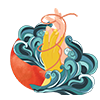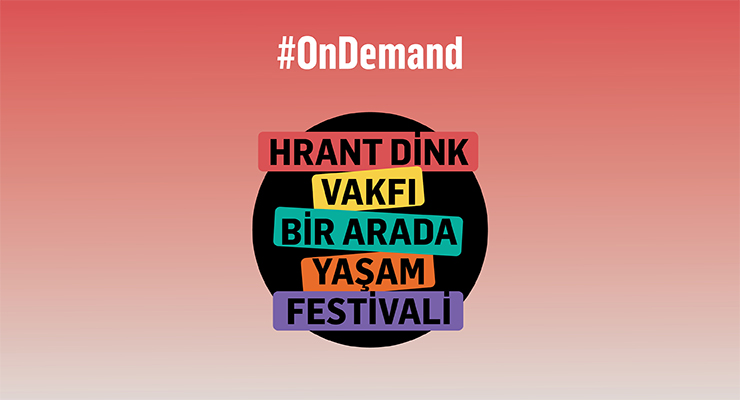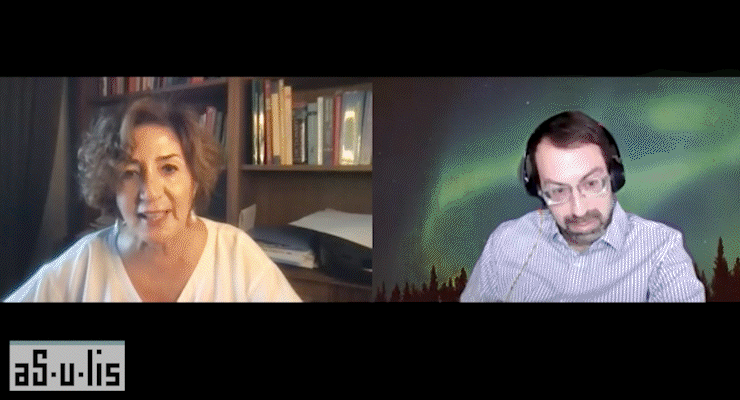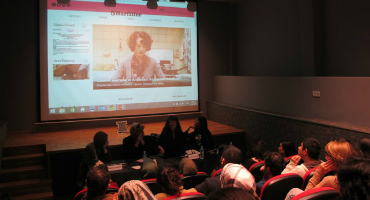The online event titled '7 minutes with civil society' was held on 5-6 May 2021 where 14 civil society organizations supported by the Hrant Dink Foundation’s Empowering CSO's Grant Program shared their project journey.
The civil society organizations from Ankara, Bitlis, Diyarbakır, Hakkâri, İstanbul, İzmir and Kars, that are working in the fields of human rights, children, youth, minority rights, disabled rights, ecology and urban studies, migration and refugee rights, cultural studies, empowering civil society, gender and women's rights shared their unique stories.
You can watch the videos of the projects in which civil society organizations explanied the different layers of discrimination and the innovative methods they have used to overcome the prejudices.
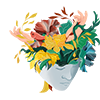
Diyarbakır Association for the Protection of Cultural and Natural Assets
Social Research and Original Thinking Association
The Quincentennial Foundation Museum of Turkish Jews
Emrah İnapolat from Social Research and Original Thinking Association has shared the details of their project titled “Kars: From A Shared Past Towards Coexistence in the City of All of Us”. İnapolat added that the association, founded in 2017 and works on human rights, emphasizes supporting differences, equality, and pluralism. He stated that the scope of the project is not only based on cultures destroyed in Kars but also Armenia, Georgia and Russia. He also mentioned that the field studies on the traditions of different ethnic and cultural groups living in Kars, Ardahan and Iğdır, accompanied by researchers and residents of the region, have found many memory places that host different cultures, but these are also in a neglected state.
Emel Benbasat and Nisya İşman Allovi from The Quincentennial Foundation Museum of Turkish Jews shared the details of their project titled “What Our Jewish Past Taught Us”. Benbasat and Allovi stated that the project aimed to introduce the cultural life of Ottoman and Turkish Jews, by holding oral history interviews with people who left the regions they lived in. They added that the people they have interviewed shared their childhood photos so the project team created a digital album. Stating that they also focused on social life as well as cultural transmission, the Foundation stated that they recorded many professions and cultural values that have disappeared today, such as "Plate Glue".
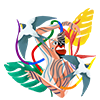
PERYÖN - People Management Association of Turkey
Production Economy Association
Yüksekova Social Impact and Culture Association
Nebile Bayrak from the Production Economy Association shared the Women's Labor Against Climate and Biodiversity Crises (KADIM) project with the participants. The project aims to create a productive and diverse sustainable ecosystem with the participation of women and focusing on gender equality and traditional nature-friendly production methods in the climate crisis. Bayrak stated that within the scope of the project, a solidarity network was created and they met with 26 women's networks on online platforms to discuss the problems of producers. Stating that one of the common problems in every women's community is not being paid enough for their labour. Bayrak said they aim to create a fairer world through the Good for Trust sales channel, a system that brings together ecologically and socially fair producers and consumers.
Esengül Pınar Özcan, the head of Yüksekova Social Impact and Culture Association, stated that the ‘Women and Children Will Change the World’ project aims to ensure that women living in the region benefit from equal opportunities in accessing social rights and to raise awareness about early childhood period. Özcan said the needs of the women they interviewed were determined via house visits done within the scope of the project. In the house visits, the team interviewed women on the topics of gender, domestic violence and discrimination.
On behalf of the Bitlis Women Entrepreneurs Association, Ayşe Topyüz and Özlem Olgun introduced the project “Women Are Empowered with Theater” and conveyed how theatre gained importance alongside other educational courses given in the association to support women in the region. Stating that they have been working on costume sewing, theatre works, sound and diction works, and raising bodily awareness through movement within the scope of the project. After a break due to pandemic restrictions, Topyüz and Olgun stated that they continued their works with studies such as fairy tale and storytelling training, improvisation studies, creative writing studies, and percussion lessons. Saying that they started their work with 40 women and continued with 700 women, Topyüz concluded by emphasizing how valuable art is for women.
Emre Tamer from PERYON - People Management Association of Turkey started his speech by stating that the pandemic had negative effects on women's employment and said that they aimed for diversity in the workplace by strengthening the capacities of the human resources units with the "Together at Work" project. He stated that PERYÖN and Gedik University carried out workshops, survey applications, awareness-raising videos, social impact reports, and mentoring activities. They have reached over 4000 people working in the human resources unit and Tamer shared the information they obtained from the survey results. Expressing that the approach to gender concepts is different for everyone based on the feedback received, he said that they included gender-related concepts and their definitions in the training activities to create a common approach.
Damla Uçak of the Clean Clothes Campaign Association shared that they are conducting research for the aircraft, which is a textile manufacturer, and they are implementing more common-use tools and fair-use practices in textile manufacturers. Uçak added that they have created training on Occupational Diseases of Migrants and course booklets, as well as information regarding the dissemination of training programs in Turkey, as well as their business plans and helpful projects. According to him, the projects tell stories about the films they make.
Nursen Aslan, who spoke about the Association for Solidarity with Refugees's project of Effective Video Production for Combating Discrimination Against Refugees, talked about the education they provided to university students in Izmir studying at the cinema, television, and communication departments as part of the project. Aslan added that they consider the refugee concerns in the seminars, stating that emotional transmission is highly important in filmmaking and that they provide instruction on this. She explained that being a refugee is not a homogeneous topic; being LGBTI+, a woman, a kid, or a disabled refugee all present unique challenges, and to counteract this, they enlist the help of professionals in respective disciplines who specialize in refugee rights, as well as emphasizing ethical principles. With shooting, camera, and music courses, she added, people benefit from the healing and unifying power of art, and the films will be screened online.
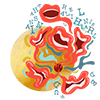
Human Rights Foundation of Turkey
Pi Youth Association
PUNTO24 Platform for Independent Jounalism
Social Rights and Research Association
Sumru Tamer, who spoke on behalf of the Susma Platform, which struggles censorship and self-censorship, said that the Susma Platform monitors violations of freedom of expression and compiles detailed information from censored people before sharing these cases on the platform's website and social media accounts. Tamer stated that the quiet platform has 79 members and that they have arranged seminars such as a crowdfunding workshop and a digital activism event. She noted that they plan numerous activities to reach various channels, with one of these events, the Kraathane Book Festival, aiming to attract literature lovers. She stated that they are planning a documentary film festival for forbidden documentaries.
Ferda Fahriolu, who presented the Foundation for Society and Legal Studies's initiative to the audience, indicated that the project's target audience included non-governmental groups that operate in the issue of discrimination, lawyers, and persons who have been discriminated against. Fahriolu said that non-governmental organizations were given training on how to interview people who have been discriminated against and how to store data under the KVKK law, and that the booklet "Application Mechanisms Against Discrimination" was translated into Kurdish, Armenian, English, and Arabic. She announced the publication of a field research paper titled Discrimination Perception and Barriers Encountered in the Process of Applying to Claims Mechanisms in Turkey, as well as Guidelines for the Prohibition of Discrimination, the Application Mechanism, and Discrimination Monitoring.
Pınar Ceylan proposed the initiative "Strengthening the Social Struggle for the Prevention of Torture and Other Human Rights Violations" on behalf of the Human Rights Foundation of Turkey. Ceylan noted that they believe that making human rights violations obvious and increasing social awareness and resistance are two of the most effective approaches for combating them, and that one of the actions carried out within this scope is the "human rights for everyone" campaign. Ceylan stated that within the scope of the campaign, they prepared short informative videos compiled from daily reports of human rights violations, and that they did not use social media prior to the project because the association's main activities are the treatment and rehabilitation of tortured people. She stated that a memory study was conducted regarding the 2015 and 2016 curfew periods in the east and southeast, and that the findings would be published in a book.
Pi Youth Association's Seda Şahin and Melisa Demirkran presented the project "Strengthening Youth Organizations for Rights-Based and Inclusive Youth Studies" to the attendees. Şahin stated that the organization has developed a project to increase the capacity of non-governmental organizations and their employees working in this field, citing goals such as youth rights and problems, improving individual capacities of young people, and ensuring that disadvantaged young people have access to equal opportunities. She stated that they conducted a study and interviewed 318 youth workers to determine their perceptions of rights-based work. In the Human Rights and Rights-Based Work Training, Demirkran stated that they discussed the historical development of human rights, the relationship between civil society and human rights, social rights, and advocacy, and that they also planned a Youth Rights Training and an Anti-Discrimination Training.
Monitoring and Reporting Disability Rights that the Social Rights and Research Association created as part of the project was shared by Hakan Özgül. In the guise of monitoring, he stated that they intend to include subjects such as due diligence, the distribution and depth of the problems' sources, support for advocacy work, influence on public policies, and strengthening of human rights. He stated that six monitoring areas have been established in the areas of not being subjected to torture, inhuman or degrading treatment or punishment, exploitation, violence, and abuse, independent living and inclusion in society, personal mobility, habilitation and rehabilitation, adequate standard of living, and social protection.

This project is funded by the European Union.



